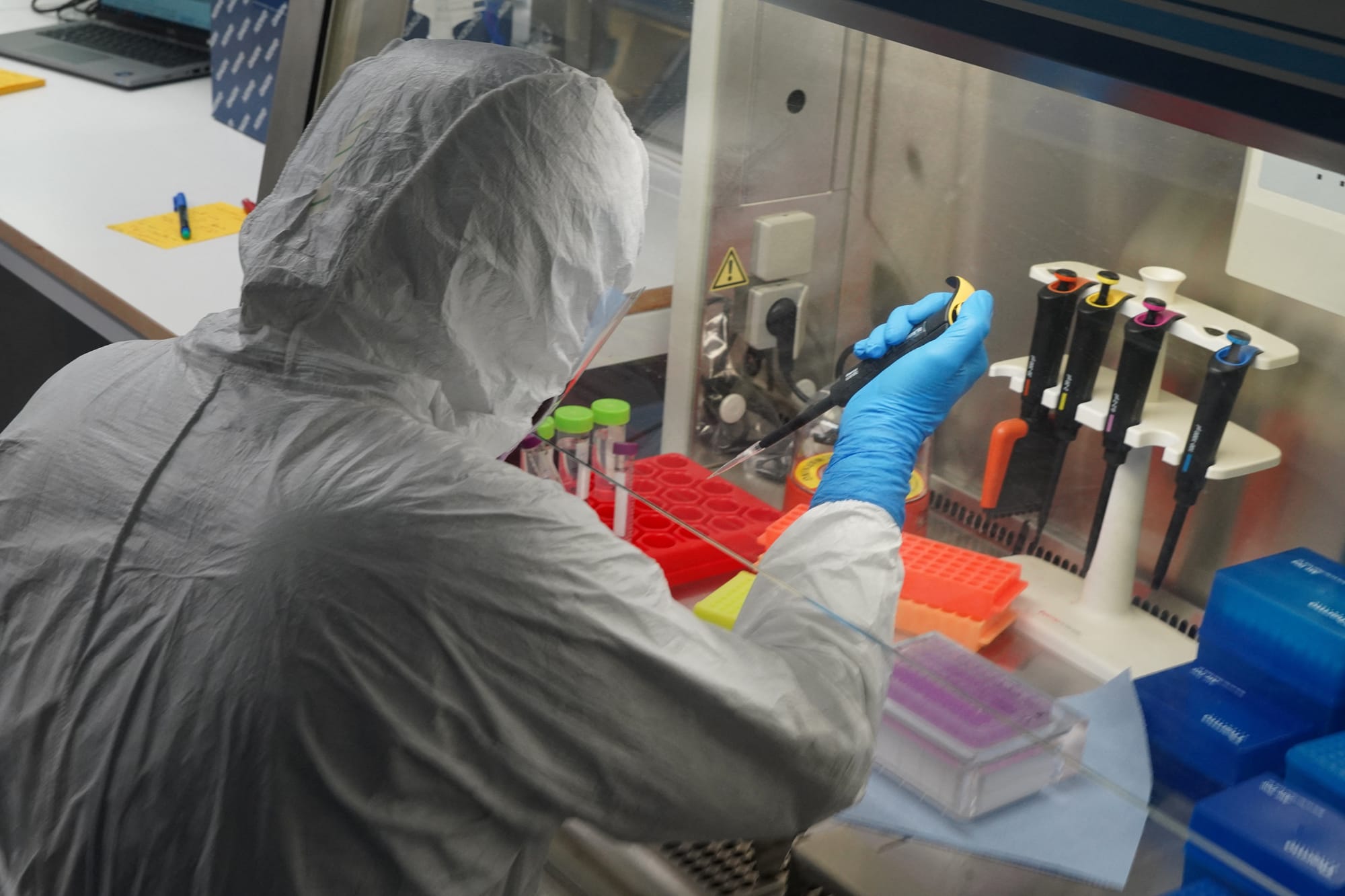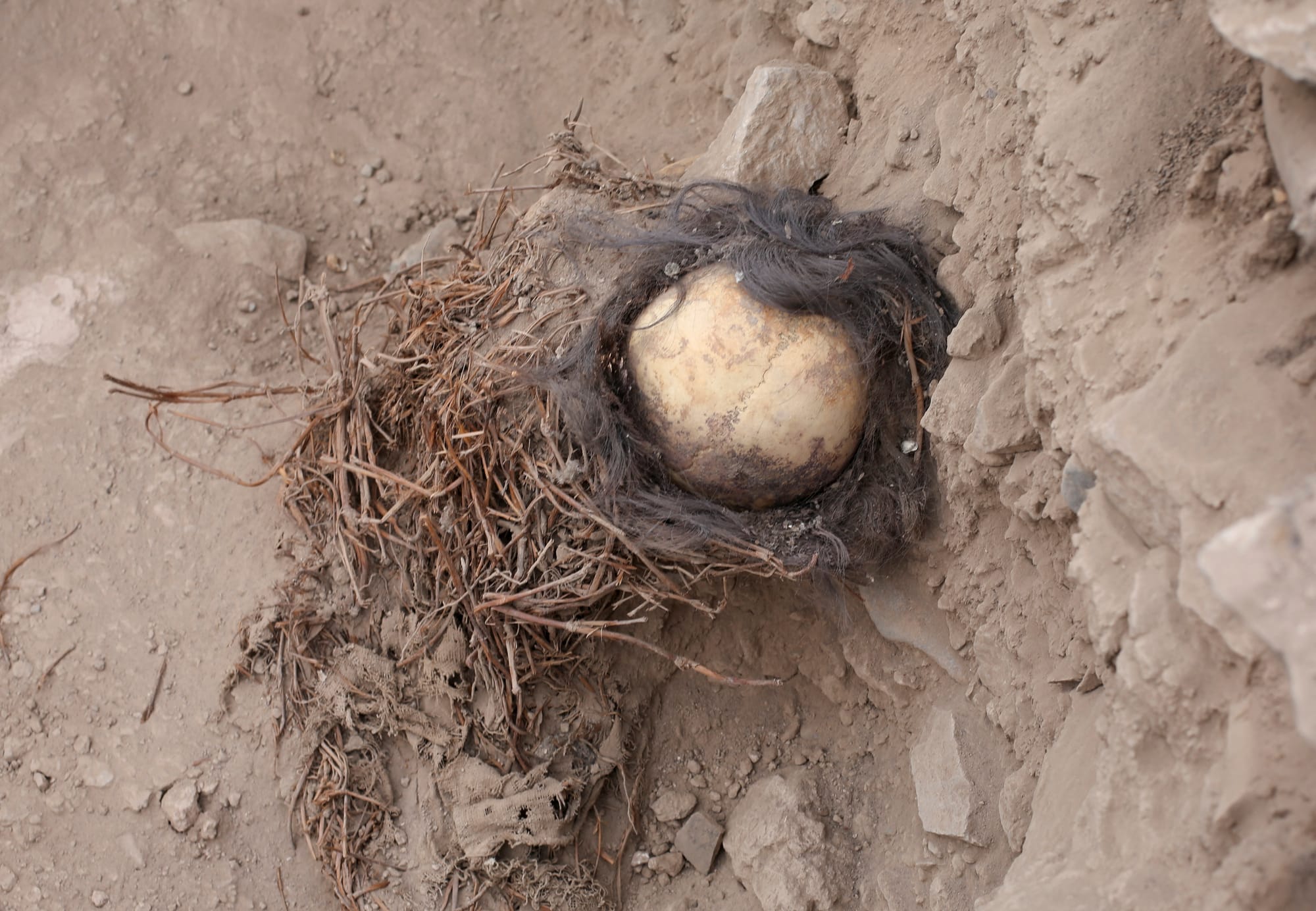From OpenAI and Microsoft's newest lawsuit to laser beams in space – Here are today's Headlines
OpenAI was just hit by a big class action lawsuit that also named Microsoft.

A few minutes every morning is all you need.
Stay up to date on the world's Headlines and Human Stories. It's fun, it's factual, it's fluff-free.
To start off, we're looking into:
OpenAI and Microsoft are hit with a new lawsuit
The backstory: To create a basis for or allow a generative artificial intelligence (AI) to form its "intelligence," companies have to take from existing materials, essentially building a library to train the AI model. OpenAI, which is behind ChatGPT and DALL-E, has gotten this training data from the internet and other media, like books.
More recently: When AI image generators first became popular last year, many artists noticed that AI would regularly steal their unique styles. Many people who create the type of content that ends up in the training datasets of AI models – like authors, artists and other creators – have been taking action against tech firms that use their work without permission.
The development: OpenAI was just hit by a big class action lawsuit that also named Microsoft (a major investor and partner of OpenAI) as another defendant. The lawsuit accuses the companies of using other people's intellectual property without permission. Click the link here for more.
Broadcom buys VMware

The backstory: Broadcom, a major player in the US chipmaking scene, made headlines in May 2022 when it revealed plans to acquire VMware, a heavyweight in cloud computing. The price tag attached to this move was US$61 billion.
More recently: Jump to December 2022, and European antitrust regulators hit the scene. They launched a full-scale investigation into Broadcom's plan. They were concerned about how it could shake up the market competition, especially in the hardware components department. Then, in April, the European Commission, in charge of antitrust matters, raised eyebrows and hinted at blocking Broadcom's acquisition. But the EU gave the green light to Broadcom's deal in July.
The development: Broadcom has successfully sealed the deal, acquiring VMware for a cool US$69 billion. The final stamp of approval came from Chinese regulators this Tuesday. Click the link here for more.
Honor's IPO buzz

The backstory: Over the past few years, Huawei, a major Chinese telecom company, found itself in the midst of global tensions with the US government over national security concerns. The world's biggest economy put restrictions on Huawei's access to important tech stuff, like chips, and even blacklisted it.
Meanwhile, Honor, a company that was part of Huawei and known for affordable smartphones, faced challenges. Huawei sold Honor in 2020 to a group that included some state-owned investment firms in Shenzen because Huawei was dealing with these tech shortages. Huawei said this move was to protect Honor and let it operate on its own.
The development: In the third quarter, Honor surged ahead in China, claiming the top spot for handset shipments with over 11 million units. Now, Honor has said it's gearing up to go public. In its official statement, the company said how well it has been doing in the past three years and wants to take it to the next level with an initial public offering (IPO). Click the link here for more.
To end, we'll look into:
Human genetics show interbreeding

The first homo sapiens (humans) appeared on the scene between 200,000 to 300,000 years ago. But we weren’t the only Homo species out there. In fact, we’re actually the ninth and youngest of the Homo genus. Many of those species existed for longer than humans have so far. Still, we’re the only ones left today. For a time, some other Homo species lived alongside us, like Neanderthals.
For years, scientists have been suggesting that humans interbred with some other Homo species. According to a new study on human genetics published in the journal PLoS Genetics, this idea looks more and more likely. Humans probably interbred with the Denisovan species as we spread out of Africa about 60,000 years ago. Denisovans were native to parts of Asia, like modern-day Siberia, Tibet and Laos.
Humans today seem to have gotten a genetic adaptation from Denisovans. Click the link here for more on the study.
In other news ...
🔢Numbers:

📉Market snapshot and key quotes:
- In the US: The US stock market was closed for the Thanksgiving holiday.
- In Hong Kong: Hong Kong shares bounced back from early losses on Thursday. The positive shift was fueled by optimism that the US won't increase interest rates anytime soon, and there was a boost from some recent measures to boost the property sector.
📊Top gainers/losers and company news:
- In Hong Kong: Longfor Group shot up by more than 13%, China Overseas Land and Investment rose by over 4%, and China Resources Land jumped by almost 3%.
- Baidu surged by over 6.7%, Meitu gained 3.1%, and JD.com rose 2.1%.
More headlines ...
📰Israel/Palestine updates: On Wednesday, the head of UNICEF said that the Gaza Strip is currently the "most dangerous place in the world to be a child." The same day, the Israeli Defense Forces (IDF) showed what it says is a Hamas military facility under Al-Shifa Hospital to a group of international journalists who were given a look inside. Also, the temporary truce to allow humanitarian aid into Gaza and free some hostages held by Hamas as well as some prisoners held by Israel will begin on Friday, according to Qatar.
📩Dutch election results: On Wednesday, the Netherlands held its general election, which was set to be close. Controversial, hard-right politician Geert Wilders ended up pulling through, which could be a sign of future elections in Europe moving to the right.
🚫Finland to close most Russia border crossings: Finland has accused Russia of allowing illegal border crossings into its territory. Recently, it closed three of its border crossings with Russia. On Wednesday, Finland announced it is going to close all except one crossing point at the very north of its border with Russia starting on Friday.
💼India restarts Canadian e-visas: India and Canada have been experiencing tensions over the past few months after Canada accused the Indian government of possible involvement in the murder of a Canadian Sikh separatist leader. India ended up suspending some Canadian visas after the dispute began. But things have been warming up lately, and India just began issuing e-visas for Canadian tourists and business travelers again.
🥼Pneumonia outbreak in China: Officials from China’s National Health Commission reported outbreak clusters of pneumonia and respiratory diseases among children. The World Health Organization (WHO) requested more info on the situation. According to the WHO, on Thursday, Chinese health authorities did not detect any unusual or novel pathogens and provided the requested data. The data suggests the outbreak is coming from a combo of lifting COVID restrictions and circulating known pathogens, especially some that have been making their rounds since May.
🤑Hong Kong is still at the top for luxury retail: Cushman & Wakefield just released the 33rd edition of its Main Streets Across the World report, which examines prime retail rental rates in cities worldwide. Hong Kong is still at the top of the rankings, coming in third globally for the world’s most expensive retail districts – specifically the main street shops in Tsim Sha Tsui.
⛏Child mummies found in Peru: The area around Lima, Peru, used to be commonly used for ceremonies in ancient Ychsma culture. Four mummified children were just discovered in one of the oldest neighborhoods there, all of them believed to be over 1,000 years old. Some of the skulls still had hair on them. Researchers said the bodies found were not human sacrifices but normal burials in the “ceremonial atrium” of the area.

⛳Hong Kong LIV Golf: From March 8 - 10, the Hong Kong Golf Club in Fanling will host the first-ever Hong Kong stop tournament of the Saudi-funded LIV Golf, and the organizers are planning to invest around HK$500 million for the event. The event will reportedly combine sports and entertainment, with international singers performing after tournament play.
💰China’s unsecured loans: China, the world’s second-largest economy, has been dealing with a property crisis dragging down growth after many developers started running into financial troubles and defaulting on debts. To help these developers out and ease the crisis overall, China may allow banks to offer unsecured short-term loans to qualified developers for the first time, according to people in the know.
👩⚖️Tesla’s self-driving tech lawsuit: Electric vehicle leader Tesla has been facing lawsuits related to its self-driving technology and how safe it is. In a recent ruling out of Florida in the US, a judge found evidence that Tesla knew the company’s self-driving tech was defective but still allowed the cars to be driven unsafely anyway. This ruling clears the way for a lawsuit over a fatal crash near Miami in 2019 involving a Tesla Model 3.
💻Bard and YouTube: It seems like every other day, artificial intelligence (AI) tech and chatbot platforms are learning more and developing more capabilities. Recently, Google announced that its Bard AI chatbot can now answer questions about YouTube videos. So, if you're wondering anything about that video you just watched, you can just ask Bard.

🎬Scream 7 loses stars: The Scream franchise is a long-running horror collection that got started in the mid-90s. Since then, there have been several sequels and reboots – but the next film is running into some creative challenges with a talent switch-up. First, Neve Campbell said before she wouldn't come back for "Scream VI" because the salary didn't cut it. Now, the seventh iteration will have to be rewritten after losing two stars this week. Jenna Ortega can't return because of scheduling conflicts with her hit show "Wednesday," and Melissa Barrera was fired over some comments she made about the situation in Israel and Palestine.

🚀NASA plays with lasers: Ideally, we'd like to expand our internet capabilities further into the galaxy, especially if we plan on going to Mars. NASA just showed off a fancy new bit of tech that could help us with that by beaming messages with laser beams across nearly 16 million kilometers (10 million miles). It's all part of NASA's Deep Space Optical Communications (DSOC) experiment. This is the first time optical comms have been sent across a distance that far.

Enjoying our TMS Headlines?
Forward it to a friend! After all, sharing is caring.
Anything else? Hit reply to send us feedback or say hello. We don't bite!
Written and put together by Joey Fung, Vanessa Wolosz and Christine Dulion




Comments ()